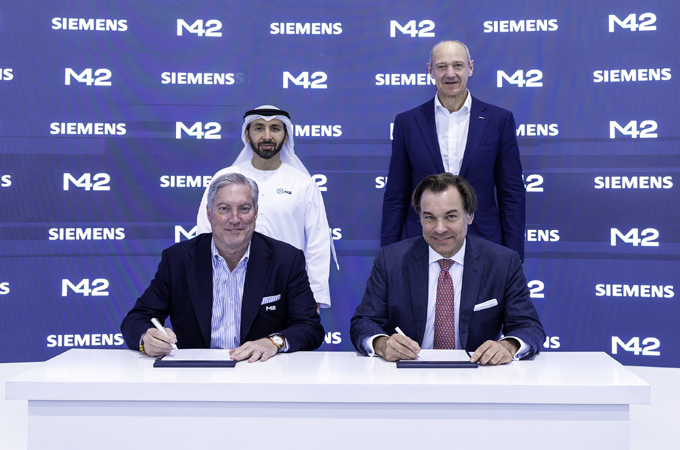M42, a global tech-enabled health company headquartered in Abu Dhabi, has joined forces with Siemens to boost energy efficiency across the UAE healthcare sector through a partnership that will audit its health facilities for energy efficiency and explore digitalisation of the infrastructure.
Decarbonising infrastructure is one part of M42's two-fold approach to reducing its carbon footprint.
It also includes using preventative tech-enabled health solutions to reduce the number of patients required to visit such energy-intensive facilities.
The project’s initial phase involves a comprehensive energy efficiency audit of the healthcare facilities operated by M42 across the UAE.
These audits are designed to identify opportunities for substantial energy savings and examine means for carbon emission reductions.
Siemens and M42 have further committed to discussing and developing a roadmap that will lead to the digitalisation of M42's infrastructure.
This digital transformation aims to enhance operational efficiency and improve the comfort of patients, healthcare professionals, and staff at M42's facilities.
The partnership will leverage the Siemens Xcelerator platform, setting a new industry standard for healthcare sustainability.
By integrating innovative technologies, M42 and Siemens are determined to make a positive environmental and societal impact.
The first audit, conducted in late November, found that one of M42’s healthcare facilities could achieve significant savings in energy costs through heating, ventilation, and air conditioning (HVAC) retrofits, and through the integration of space management systems via Siemens Enlighted portfolio that centralises energy management into a building management system.
Implementing these energy-saving solutions across M42’s portfolio of hospitals and clinics – the largest network in the Middle East – promises substantial reductions in carbon emissions and increases in operational efficiency.
According to the international non-governmental organisation Health Care Without Harm, emissions from healthcare facilities (Scope 1) make up 17 per cent of the sector’s worldwide footprint. Indirect emissions from purchased electricity, steam, cooling and heating (Scope 2) comprise another 12 per cent.
Mark McGourty, Group Chief Operating Officer of M42, said: “M42 is at the forefront of tech-enabled healthcare; we're leveraging cutting-edge tools like AI and genomics to treat people, not just patients and focus on health, not just healthcare. Harnessing technology is only part of our strategy. We're also committed to decarbonising our facilities to ensure we can sustainably continue to provide world-class care to those in need. Our collaboration with Siemens demonstrates our dedication to achieving net zero emissions by 2050.
“The healthcare sector's carbon footprint is immense; if it were a country, it would rank as the fifth-largest emitter of greenhouse gases. This partnership marks just the beginning. I call upon other healthcare facilities to join us in this critical endeavor of decarbonising their operations, paving the way towards a more sustainable future for the industry and the planet,”
Helmut von Struve, the Chief Executive Officer of Siemens in the Middle East and the UAE expressed his delight at the partnership: “We are proud to partner with M42 and are confident that we can develop a roadmap that will improve asset performance and enhance the comfort of patients and healthcare workers in their facilities. This partnership isn’t just about energy savings; it’s about setting a new standard in the healthcare industry for sustainability and operational excellence.”
Siemens collaborates with healthcare providers globally to create highly efficient hospitals with smart, optimised processes.
Building systems, automation software, and hardware that are part of Siemens Xcelerator—an open digital business platform designed to accelerate digital transformation on a larger scale—allow operators to centralise control of thousands of data points like energy supply, fire protection, HVAC, lighting and access controls, optimising patient comfort, facility safety, and sustainability. --OGN/ TradeArabia News Service































